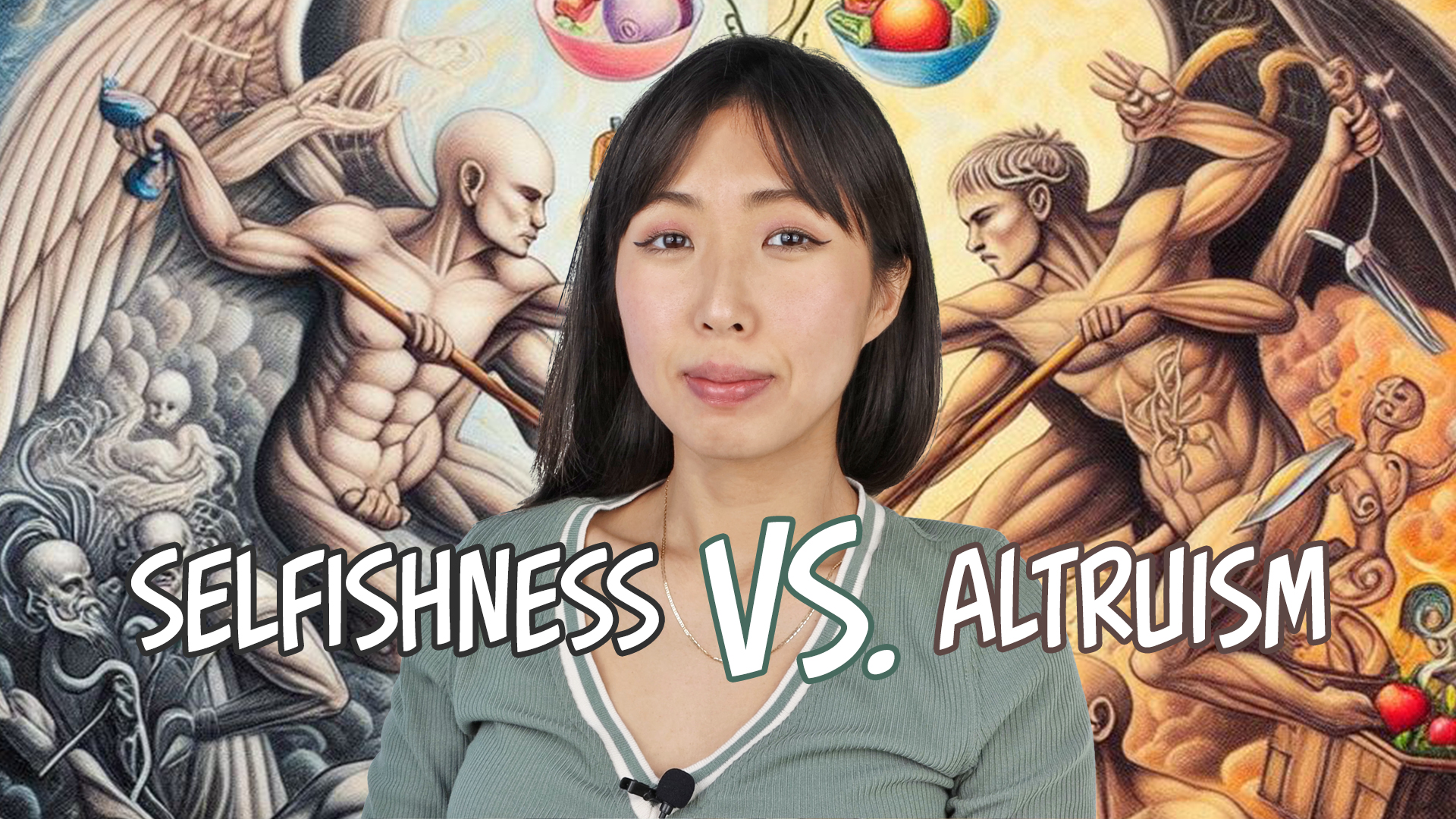
I go over the key discussion points between altruism and selfishness.
Catch behind-the-scenes posts and help choose my next video topic at:
Patreon:
https://www.patreon.com/thepholosopher
P.S. I spent this past year creating my first-ever kids book titled, “The Unschooled Adventures of Jack and Pho,” over at:
https://igg.me/at/unschooled
Families over the years have asked if I was ever going to make kids content, and I decided that it was time to do so with a topic I am SO passionate about: getting children into an environment that values individuality and self-direction.
This first title is geared toward children aged 9-to-13 but can be enjoyed by anyone wanting to see what an unschooled environment could be like.
We’re offering the book with a special bookmark and sticker pack as part of kicking off this ever-expanding universe.
Consider joining us as we inspire families to move away from the compulsory school system and, instead, toward freedom in learning.
Looking forward to you and your family joining in on the Unschooled Adventures!
~Pho
Also available on Amazon at: https://amzn.to/4aVAzsi
(affiliate)
Transcript
Selfishness versus Altruism
In popular culture, people will ascribe a label of “selfish” or “altruistic” to other’s behavior depending on the actions.
For example, leftists will call corporations greedy and selfish, but government programs “public service” and “altruistic.”
But is there really a difference between selfish behavior and altruism?
While some may say that being altruistic, or selfless, is about helping others instead of oneself, like serving food at a homeless shelter is helping another in need, the truth is that there is no difference between selfishness and altruism in psychology because all action is selfish.
Selfishness here means that a person acts to please their desires, whether it’s in material goods like buying food and electronics, or having psychological satisfaction, like feeling good about giving needy family a turkey on Thanksgiving.
We all act in our self interest regardless of whether we are doing something to please ourselves alone or are doing something that also pleases others.
To understand why, let’s look at an example of a mother and her child.
A mother, who loves her child, does so because she derives pleasure and satisfaction from seeing her child thrive.
She may give her child food, hugs, and presents, all because she wants her child to feel loved and whole.
A mother may even put herself in harm’s way, such as jumping in front of an oncoming car, if it means she can save her child from being hit in the street.
Even though the mother is giving up both her financial and bodily resources, she still is acting in her interest of wanting to see her child happy.
A mother who does not care for her child may not do these things because she does not feel satisfaction from it.
This is why there are instances where mothers neglect or abandon their children.
They do not get satisfaction from raising a child and, because of that, do not give their children strong attachment.
Now, an unwilling mother may still take care of her child out of fear of social consequences.
She may fear how she will be treated if she doesn’t take care of her child and, in this thinking, takes care of her child out of her own pain avoidance.
Notice that this is still her own satisfaction being met: a desire to avoid the greater social discomfort of being treated as a neglectful mom.
A mother who neither cares for her child, nor the consequences, may still abandon her child, as tragically happens sometimes.
Even with difficult circumstances, people may choose a painful path for a greater reward, like the pain from strenuous exercise.
It’s because they have a greater, selfish desire to see the health results from the exercise, that they choose this pain.
This comparative thinking also applies even when someone is under duress.
For example, if a robber points a gun at someone and says, “Your money or your life,” an unarmed person may choose to hand over their wallet, not because they wish for the wallet to be handed over, but because their greater selfish concern for not being shot outweighs keeping the wallet.
As you can see, selfishness is always the root of human action because all people are engaged in seeking their own satisfactions, even if it is just psychological and to avoid a worse outcome.
This psychological selfishness is not a bad thing, though.
Selfishness is what drives the mutual satisfaction behind all our modern conveniences and technologies.
When entrepreneurs in the market see the wants and needs of others, they use empathy to think through how they can meet those wants and needs.
Their selfish desire for profit is what leads them to bringing opportunities to others who, if they also find the opportunity worthy, act on their own selfish desire of trading currency for a good or service because they value that exchange more than holding the cash.
Likewise, the entrepreneur values the cash, and its potential future use, more than the resources expended to make the product.
Without this mutual selfishness satisfaction being met, there would be no trade.
Every time you shop at the grocery store, buy a gift for a friend, or hire a home service company, you are acting in your self-interest, and so is the other party providing for you.
It’s a wonderful thing.
The next time someone tries to tell you that “selfishness” is a bad thing, remind them that everyone’s actions are rooted in selfishness and, if someone truly does not value doing something, whether it’s making a purchase, or donating clothes to someone in need, they won’t engage in that activity.
People only act when they believe that it is in their net benefit to do so as compared to present alternatives.
And that benefit is not just about material goods, but about personal psychological satisfaction.
Sources
Philosophical Voluntaryism: https://amzn.to/3I2gmDH
Human Action: https://amzn.to/42H2us2
(affiliate)